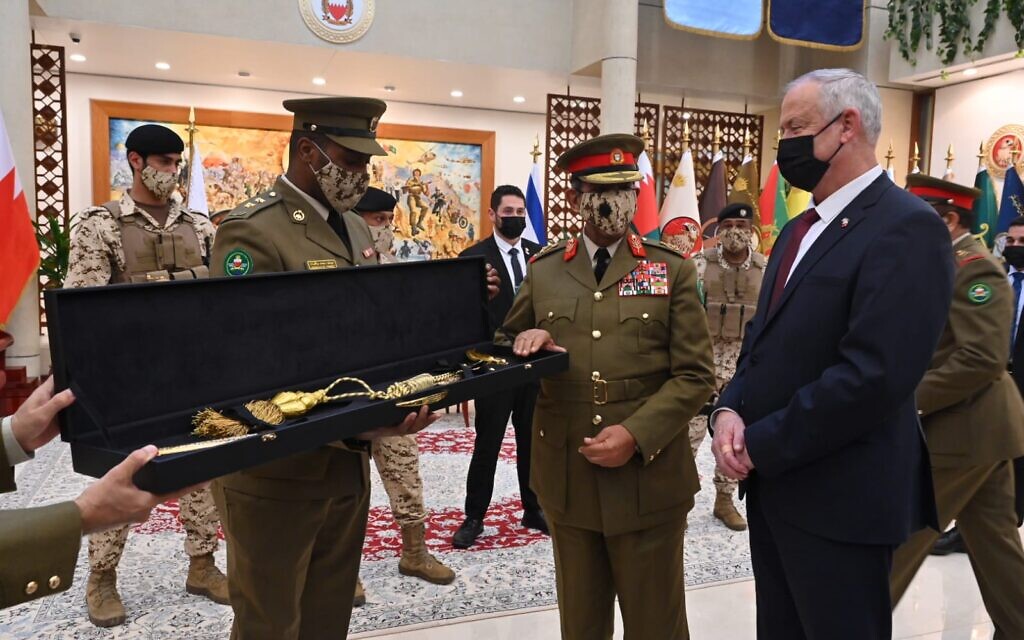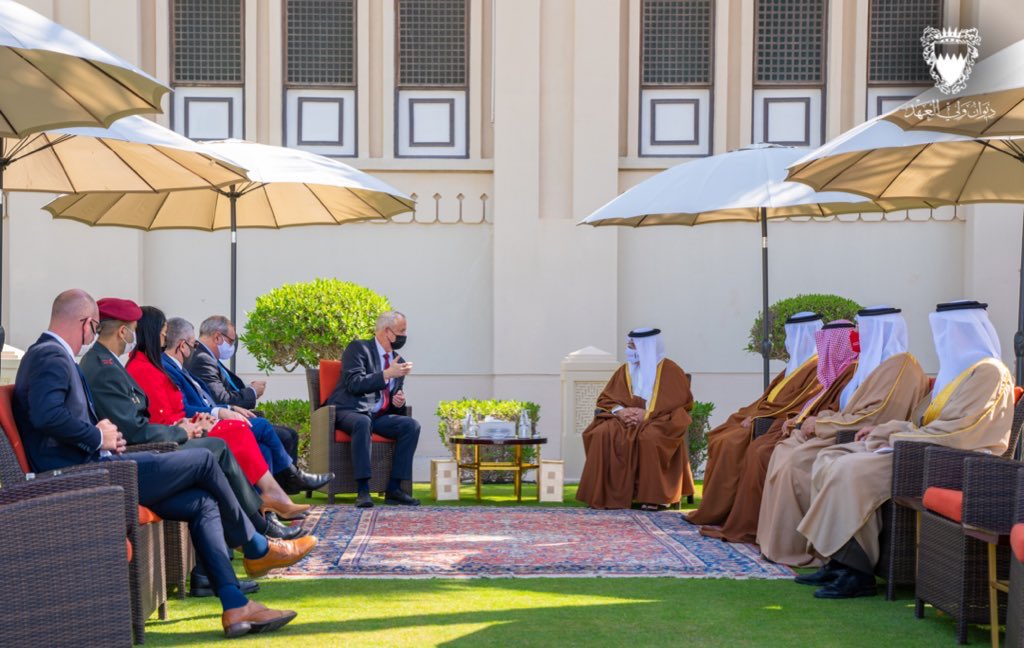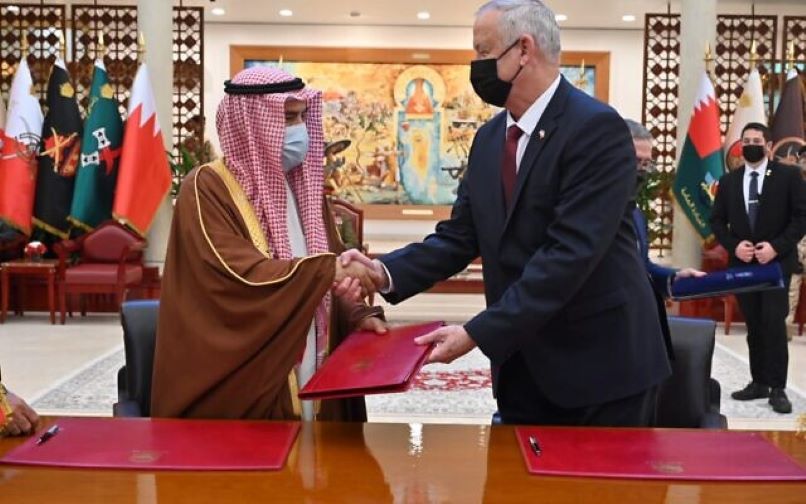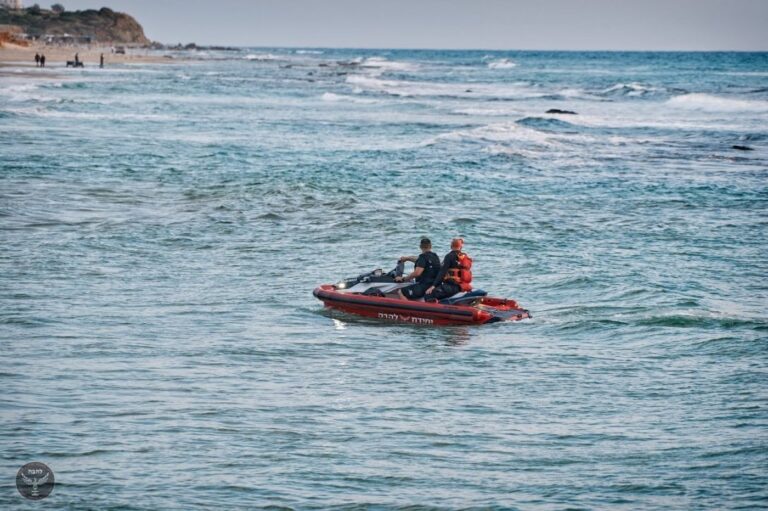Israel and Bahrain signed a defense agreement Thursday as part of a show of cooperation aimed at sending a message toward archenemy Iran.
Defense Minister Benny Gantz signed the memorandum of understanding with his Bahraini counterpart in the capital of Manama, a key step after the two nations normalized ties in 2020.
He called the agreement “a new high point” in the countries’ relationship that will help protect other countries in the region. Earlier, Gantz and his Bahraini counterpart visited the headquarters of the U.S. Navy’s 5th Fleet, which is based in the strategically located Persian Gulf country.

Gantz’s office said the agreement is designed to “help advance intelligence cooperation, a framework for exercises” and strengthen ties between the countries’ defense industries. The memorandum is Israel’s second with an Arab nation after Gantz signed one with Morocco last year.

The visit comes at a time of growing tensions in the region fueled by the unraveling of the international nuclear deal with Iran and the ongoing civil war in Yemen. The U.S. and Israel have accused Iran of carrying out a number of attacks on ships in the Gulf, including on Israeli-linked cargo carriers, and Iranian-backed Houthi rebels recently launched a series of missile strikes at the United Arab Emirates. Israel has acknowledged stepping up naval operations in the Red Sea, an important waterway in the region.
Gantz was joined by the commander of Israel’s navy as well as Bahrain’s defense minister on the tour of the 5th Fleet. The delegation visited a U.S. guided-missile destroyer, the USS Cole, and discussed ways to cooperate in the volatile region. With Israel improving ties with Arab countries, the U.S. last year moved Israel away from its European Command and into its Central Command, which oversees the Middle East.
Visited @US5thFleet in Bahrain, hosted by our friend VADM Brad Cooper and H.E. LTG. Abdullah Bin Hassan Al Nuaimi. We toured the USS Cole and conducted a dialogue on challenges and opportunities for maritime cooperation. pic.twitter.com/oMNfpJ8fqY
— בני גנץ – Benny Gantz (@gantzbe) February 3, 2022
Over the past year, Israel’s cooperation with the 5th Fleet has expanded, Gantz said.
“This strategic cooperation is critical in facing developing challenges in the region,” he added. “Deepening cooperation will enable us to maintain regional stability and to defend the common interests of Israel, the United States and Bahrain.”
שר הביטחון בביקור היסטורי בבחריין
עדכונים שוטפים עכשיו בסטורי של גנץ >>https://t.co/ENfANlK7aU pic.twitter.com/xKkqeiRad2
— ה-Story של בני (@TheGANTZtagram) February 3, 2022
Gantz’s visit also comes as the U.S. leads a naval exercise with the participation of some 60 nations, including Israel and Saudi Arabia.
“This visit highlights the importance of the U.S. 5th Fleet’s decades-long strategic relationship with Bahrain and expanding partnership with Israel following the recent alignment of Israel to U.S. Central Command,” said U.S. Vice Adm. Brad Cooper in a statement issued by Israel’s Defense Ministry. “We are always at our best when we work together with our international partners.”
Bahrain and the United Arab Emirates were among four Arab countries that joined the “Abraham Accords,” a series of diplomatic pacts with Israel brokered by the Trump administration.
For years, Israel and Bahrain maintained clandestine security ties, rooted in their concerns about Iran. Since the agreement, the countries have opened embassies, signed a series of agreements and established direct flights and business ties.
Bahrain’s population is majority Shiite, and the country has been ruled since 1783 by the Sunni Al Khalifa family. Since Iran’s 1979 Islamic Revolution, Bahrain’s rulers have accused Tehran of arming militants and fomenting dissent on the island, something Iran denies.
Normalization with Israel remains a contentious issue for Bahrain’s Shiite majority, which long has accused the country’s Sunni Muslim rulers of treating them like second-class citizens.
(YWN Israel Desk – Jerusalem & AP)











